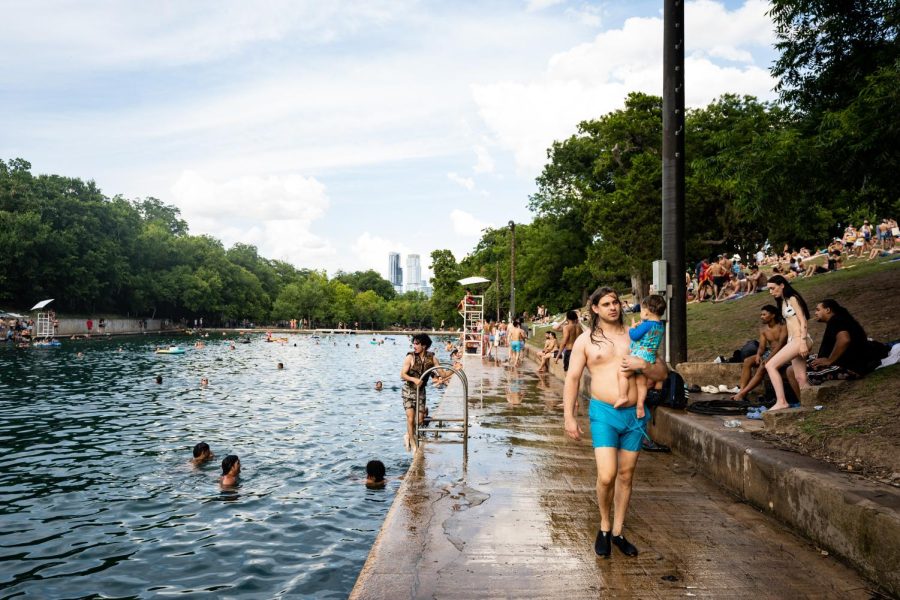Why is it so hot? Austin breaks heat index records with 118-degree temperatures recorded last month
People swim and lounge at Barton Springs Pool on July 1, 2023.
July 2, 2023
Last month, Austin broke its heat-index record after 118-degree temperatures were recorded at Camp Mabry on June 21, according to the National Weather Service.
Texas, among other states in the United States, will remain extremely hot during the rest of the summer with high temperatures ranging between 90 and 100 degrees Fahrenheit. According to the National Oceanic and Atmospheric Administration, extreme heat waves have become more common over the past few decades.
Heat domes are a phenomenon that sometimes exacerbate summertime heat. They occur when high-pressure circulation in the atmosphere acts cap-like and traps heat at the surface.
Judson Partin, a research scientist at the Jackson School of Geosciences’ Institute for Geophysics, said Austin’s heat index or “feels like temperature” can be partially blamed on high humidity, enough to make temperatures feel higher than they actually are.
“When you evaporate water from your body, you’re actually cooled off, which is why the body sweats,” Partin said. “When it gets more humid, you’re still sweating but your sweat isn’t evaporating and you’re not cooling off because of that.”
Partin said the heat in Texas “self-reinforces,” meaning the state’s atmosphere, with plenty of sunlight and few clouds, dries soils out faster, and dry soil makes for hotter conditions.
“These hot droughts are really tough, and the way they really break is when it starts raining enough to disrupt the atmosphere, knock the high pressure out, and then the soil gets wet again,” Partin said. “When the soil is wet, it takes more heat to raise the temperature.”
Partin said another reason for higher temperatures in the summer is consistently warmer nights, caused by climate change. Since the land does not cool overnight, heat can get worse the next day, Partin said.
“The human body likes around 72, 73, 74 degrees Fahrenheit, so if the overnight low is like 77, you’re never going to stop running your AC,” Partin said.
To prevent heat exhaustion and heat stroke, The Texas Department of State Health Services warns residents to take precautions like drinking plenty of water, never sitting in parked or turned-off vehicles and taking action at the first signs of heat illness. To stay cool, Austinites can go to various cooling centers and pools throughout the city.













